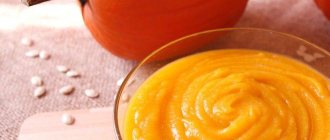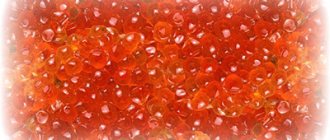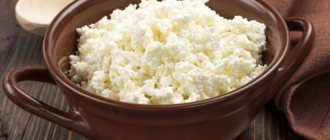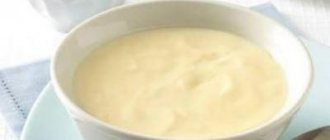Is it possible to have sweet dill while breastfeeding?
To stimulate lactation, a woman can and even needs to drink tea with fennel. Fennel can be used immediately after childbirth. It is practically harmless, is not an allergen, and has a beneficial effect on all body systems. This is a good option to diversify a nursing woman’s diet during lactation. We talked in detail about the beneficial properties of fennel and contraindications for women here.
Fennel seeds contain anethole, which is a phytoestrogen. It has the properties of the estrogen hormone and stimulates milk production.
What are the benefits of eating fruits?
The stimulating effect of “medicinal dill” to increase the amount of breast milk has been proven by multiple studies. The seeds, fruits, dry extract, herb, and essential oil obtained from fennel have beneficial properties. If a woman constantly drinks tea with this plant, then when it passes into breast milk, it has a beneficial effect on the baby’s nervous and immune systems. Children become calmer and less agitated (you can learn more about the beneficial and medicinal qualities of fennel for children here).
Indications for taking fennel for breastfeeding:
It is necessary to stimulate lactation in case of insufficient milk production in a woman and saturates breast milk with useful substances.- Used to normalize metabolic processes.
- Used for the prevention and treatment of stagnation and inflammation in the mammary gland during lactation.
- Used in the treatment of mastitis and mastopathy.
- Helps the baby to start feeding easily.
- Used to reduce bloating, eliminate intestinal colic and improve the functioning of the digestive system.
- It is used as a sedative, to relieve overexcitation and anxiety, and increase stress resistance, which is also important for nursing women.
- Serves as a preventative against colds and strengthens the immune system.
The plant can rightfully be considered a universal healer. Fennel tea will also help with cholelithiasis, chronic pancreatitis, cystitis, pyelonephritis, conjunctivitis, upper respiratory tract diseases, stomatitis, insomnia, poisoning with alcohol and nicotine toxins, and will be useful for those who want to lose weight.
The beneficial properties of the plant are determined by its chemical composition:
- Nutritional value 100 g:
- Calorie content: 345 kcal.
- Protein: 15.8 g.
- Fat: 14.87 g.
- Carbohydrates: 12.49 g.
- Dietary fiber: 39.8 g.
- Ash: 8.22 g.
- Water: 8.81 g.
- Saturated fatty acids: 0.48 g.
- Essential amino acids: 9.117 g.
- Essential amino acids: 6.178 g.
- Omega-9: 9.91 g.
- Omega-6: 1.69 g.
- Styrene: 0.066 g.
- Contains vitamins:
- Retinol (Vit. A) 7 mcg.
- Thiamine (vit. B1) 0.408 mg.
- Riboflavin (vit. B2) 0.353 mg.
- Nicotinic acid (vit. B3, PP) 6.05 mg.
- Pyridoxine (vit. B6) 0.47 mg.
- Ascorbic acid (Vit. C) 21 mg.

Contains macroelements:- Calcium: 1196 mg.
- Magnesium: 385 mg.
- Sodium: 88 mg.
- Potassium: 1694 mg.
- Phosphorus: 487 mg.
- Contains microelements:
- Iron: 18.54 mg.
- Zinc: 3.7 mg.
- Copper: 1067 mcg.
- Manganese: 6.533 mg.
Read more about the beneficial properties of fennel and its contraindications in a separate article.
Product composition, calorie content
Nutritional value of black cumin:
| Squirrels | 19,7 % |
| Fats | 14,6 % |
| Carbohydrates | 11,9 % |
The calorie content of the spice is 333 kilocalories per 100 g.
Cumin is used not only in cooking as a spice, but also in medical practice as a source of vital substances. The seeds contain vitamins: A, C, E, K, B, potassium, magnesium, iron, essential oils.
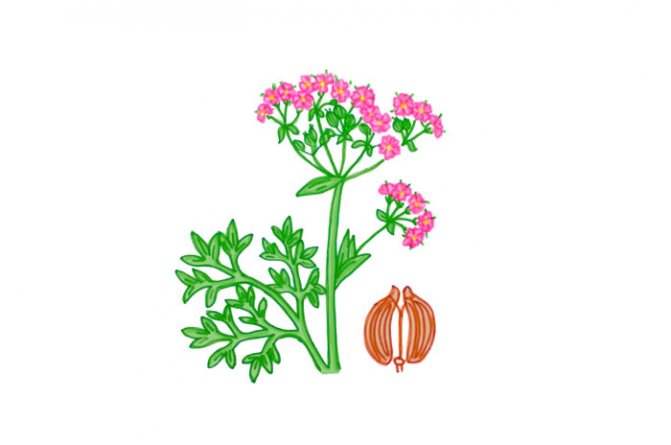
Can cumin be used by a nursing mother? Yes, the spice is recommended for use during breastfeeding. It has a beneficial effect on milk production and improves the immunity of mother and baby. But taking cumin-based products is allowed from the second month of a child’s life, and if there are no undesirable manifestations in the form of a rash, abdominal pain, or anxiety.
Can it cause harm?
Important! Contraindications: an absolute contraindication is individual intolerance.
Restrictions:
- It is not recommended for diarrhea and indigestion, as it has a choleretic, diuretic and laxative effect.

Fennel is an antispasmodic, and its use in the 2-3 trimester of pregnancy is highly undesirable, as it can cause miscarriage.- People with arrhythmias should take it with caution.
- Fennel, eaten in large quantities, can cause bleeding.
- Hypotensive patients should use it with caution, as fennel lowers blood pressure.
- It should not be consumed in large quantities if you have epilepsy.
Side effects: in rare cases, allergic reactions, gastric and intestinal disorders, nausea, vomiting, exfoliative dermatitis are possible.
Harm and contraindications for breastfeeding
The spice has practically no dangerous properties, but we must not forget about the individual reaction of the body. Cumin for increasing lactation is not recommended if the seeds of the plant have a negative effect on health.
Possible harm:
- allergic disorders in mother and baby. This does not happen often, but it does happen because essential oils have an antihistamine effect;
- Cumin is contraindicated for a nursing mother in case of ulcerative disorders and gastritis, since it increases the secretion of gastric juice and increases acidity, thereby exacerbating inflammation;
- caraway oil is used with caution by women with urolithiasis, as the seeds are diuretic and cause the movement of stones;
- cumin for breastfeeding is not recommended for coronary disease and diabetes in the mother;
- consuming large amounts of spice causes problems of the digestive system: nausea, diarrhea, vomiting, intestinal spasms.
Application in medicine and cosmetology
For skin
For furunculosis and pustules, a decoction is prepared to treat the skin. To prepare it, 2 tbsp. spoons of seeds are poured with 400 ml of hot water. The mixture is put on fire and cooked for 40 minutes. Fennel essential oil is also used to enrich creams, tonics, and milks in the amount of 4-5 drops of oil per 20 ml. basics.
Fennel oil is used to prevent the appearance of wrinkles and tighten the facial contour. Increasing the tone and elasticity of flabby skin. Treatment of acne, sluggish inflammatory elements. Normalization of complexion.
For colic
To get rid of flatulence and intestinal colic, you need tea, namely, pour 1 teaspoon of fennel seeds into 200 ml of boiling water. Leave for 30 minutes.
Adults are recommended to drink half a glass. For children, divide 90 ml of prepared tea into 6 parts and give to the baby throughout the day.
As an anti-cellulite agent
Fennel essential oil is used for these purposes. To prepare massage oil, add 10 ml of fennel essential oil to the base base (any vegetable oil is suitable for these purposes: almond, peach, olive or apricot kernels) – 3-7 drops.
To achieve the best effectiveness, massage should be performed every day for two weeks, then 2 times a week is sufficient.
For hair
The essential oil of this plant is also used to strengthen, heal, and improve the appearance of hair. The oil saves even the driest hair and treats dandruff. To do this, add a couple of drops of fennel essential oil to your shampoo or conditioner while washing your hair.
Apply the oil in its pure form to the hair itself. For these purposes, you need to add 3-5 drops of this plant oil to your comb and comb your hair for 5-10 minutes.
For indigestion
How to brew? To prepare tea, pour 1 tbsp. spoon of fennel 150 ml. boiling water You can brew seeds, leaves, and fruits. You should drink it no later than half an hour before bedtime.
This tea will also be useful for pregnant women suffering from toxicosis in the first trimester. Half a cup of healing tea will relieve attacks of nausea and normalize digestion.
For coughs and colds

To do this, brew 3 teaspoons of chopped fennel with a glass of boiling water for half an hour and take 1-3 tbsp as an expectorant. spoons 4-5 times a day.
For coughs, you can also use fennel essential oil. Add 1-2 drops of oil to a teaspoon of honey and take it several times a day.
also make milk tea with fennel when you have a cough . For this, 2 tbsp. spoons of crushed fennel seeds are brewed with a glass of hot milk and left for 2 hours.
You can use kefir or fermented baked milk instead of milk. This drink will also be useful for stimulating lactation and preventing congestion during breastfeeding.
With a runny nose
Also, for a runny nose, inhalations with fennel oil are done. To do this, drop 10-15 drops of essential oil into hot water and breathe in the steam under a towel.
You can learn more about what you can make from fennel and how it can be used in cooking and medicine here.
Many people can no longer imagine preparing dishes without using all kinds of spices and herbs. Read about the use of fennel as a seasoning, as well as the use of the root of this plant for medicinal purposes and cooking.
Beneficial features
Thanks to the nutrients it contains, cumin during breastfeeding has a beneficial effect on the health of the woman and child.
Benefits of cumin seeds for lactation:
- lactogonic agent, increases the flow of milk in the glands;
- suppresses gas formation and fermentation processes in the intestines, regulating digestion;
- relieves spasms of smooth muscles and prevents colic in the baby;
- has a mild diuretic and laxative effect, relieving swelling in the mother;
- used as an anthelmintic and antiseptic;
- calms the nervous system and is used for neuroses, insomnia and cardiovascular pathologies;
- acts as an antihistamine, preventing an allergic reaction from developing;
- increases hemoglobin levels;
- regulates metabolism, removes toxins, improves immunity;
- restores the condition of hair, nails and stops the aging process;
- reduces sugar levels in diabetics;
- has a beneficial effect on the production of enzymes and prevents cancer formations.
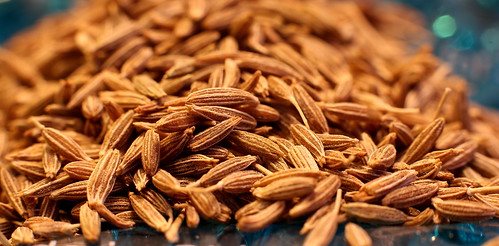
How to use in cooking?
Fennel is not only healthy, but also delicious. “Medicinal dill” has long been used in the cuisines of different nations. Greens are consumed fresh and added to salads. It goes especially well with sweet, sweet and sour and fruit salads. It is stewed in oil with a dressing of flour and meat broth.
The stems and seeds are used when canning cucumbers and tomatoes, and sauerkraut. Its roots are eaten boiled and ground. In the food industry it is used to flavor tea and bake bread. Fennel is used to prepare sauces that are served with pork, fish and offal dishes.
This plant has been receiving only good reviews from nursing mothers for a long time. “Medicinal dill” serves as a salvation in the fight against problems both during the recovery period after childbirth and colic of the child. The properties of fennel are very diverse; this plant is very useful to have at your disposal at home.
If you find an error, please select a piece of text and press Ctrl+Enter.







